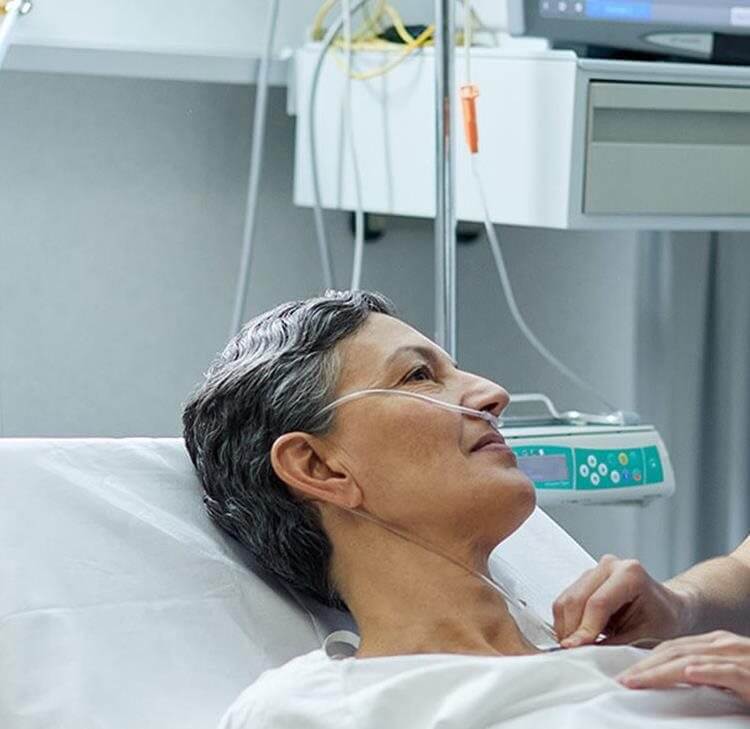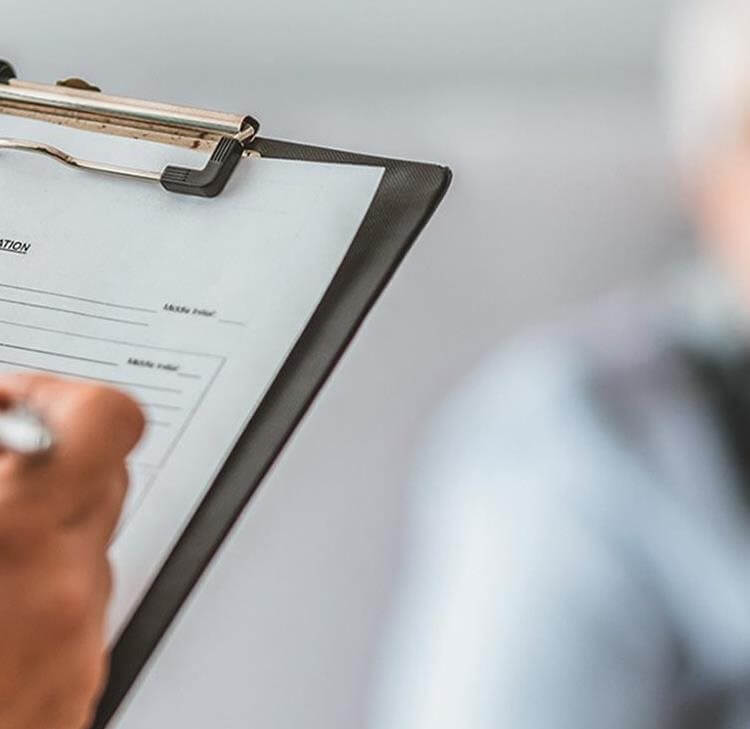Section 1: Why is your inquest witness statement important?
First and foremost a witness statement provides the Coroner with important evidence to consider as part of their investigation.
It is important to ensure that all of the relevant information is included in your statement and that the statement is clear, thorough, truthful and accurate. Your statement should be written in your own words and cover all relevant issues.
There can be very serious consequences if you sign a statement which is not truthful or contains inaccuracies.
It is likely that the Coroner will send a copy of your statement to the family in advance of the inquest. This is an important opportunity to communicate your evidence in clear and straightforward language with the bereaved family. This may be the first time that they have seen any medical evidence relating to the death of their loved one.
An inquest is a public hearing, anyone is entitled to attend and observe an inquest, including the press. If a statement is read onto the record by the Coroner in open court, then aspects of that statement could be reported by any press in attendance.
Producing a good statement at the outset can sometimes avoid you being called to attend the inquest and having to give evidence in person, because the Coroner can decide to read your statement into evidence rather than calling you to give oral evidence in court.
If you are asked to attend Court to give evidence in person your statement will form the basis of your evidence. The Coroner and all the interested parties (including their lawyers) will question you on its content and if there are discrepancies between your statement and the evidence you give in person this can have very serious consequences for you.
It is for all of these reasons that when a request is made for a statement to be provided to assist a Coroner, that request should be taken seriously.
Section 2: When might you be asked to write an inquest witness statement?
If you were involved in treating a patient then you may be asked to provide a witness statement to assist the Coroner. Clinicians can be requested to write a statement for various reasons:
- To detail your own direct involvement with the patient.
- To provide an overview of the care and treatment. This may require you to detail reviews of the patient that you didn’t personally carry out. You should document these factually taking the information from the medical records.
- To address family concerns.
- To summarise any organisational learning that has taken place following the individual’s death.
Section 3: You should review all of the relevant documents before you start writing your inquest witness statement
Prior to drafting your statement make sure that you have reviewed all of the relevant documents which will assist you in providing an accurate and detailed statement. These will include (not exhaustive):
- Medical records.
- Local and national policies in place at the relevant time.
- NICE guidelines in place at the relevant time.
- Any investigation reports relating to that patient and any statements or other documents generated during the investigation.
- Any complaints documents.
- Any of your own notes relating to the patient.
- Minutes of internal meetings where the case was discussed.
- Audit or other data that is relevant to the death.
Remember that all of these documents are disclosable to the Coroner and he or she is likely to refer to them in court.
All parties to an inquest are under a duty of disclosure, this means that any documents that are relevant to the Coroner’s investigation must be sent to the Coroner. Medical records, investigation reports, guidelines, organisation polices etc. are all sent if relevant. The Coroner will also search for relevant national guidance.
You should ensure that you have reviewed these carefully prior to drafting your statement to ensure you have all the relevant information before you put pen to paper. You do not want to be ambushed with new information for the first time in court and realise at that stage that your witness statement does not address all of the issues. For this reason, it is crucial that you make sure you have read through all of the relevant documents before you begin drafting your statement.
Section 4: What should your inquest witness statement contain?
Your statement should be a factual report, based on the records and your recollections. In terms of content:
- Generally, your statement should run chronologically from the first input with the patient to the date of death. Include dates and times wherever possible.
- It should contain neutral and unbiased facts, not offer speculation or hearsay.
- Do not identify other patients.
- Your statement should not contain any opinion, unless you are providing your opinion on the medical cause of death. Generally, it is helpful for the Coroner if you are able to provide your clinical opinion on the cause of death. Where it is available you should review the Post Mortem Report and records and consider whether you are able to assist the Coroner on reaching a conclusion on the cause of death.
- Ensure that you do not comment on matters which are outside your clinical expertise.
- If you refer to colleagues, use their full name and professional title.
- You statement will be shared with other parties to the inquest, including the family. Make sure that you are sensitive to this when drafting your statement, using appropriate and compassionate language.
- A lot of Coroners are not medically trained and it is unlikely that the family will be. Avoid using medical jargon and make sure that you explain medical terms and procedures in layman’s terms. If it’s helpful you can include anatomical diagrams.
- Consider whether there is / have been any concerns with care identified, and if so you should escalate these through the usual governance channels in your organisation so they can be investigated prior to the inquest. Do not wait until the inquest to raise concerns for the first time.
- You may be asked about changes to practice that have been implemented following the death. If you do not feel confident talking about this, flag this with your legal team as someone else will need to address organisational learning in a separate statement.
Section 5: Format of an inquest witness statement
You should use numbered paragraphs throughout your statement and make sure each page is clearly numbered. This assists others when reviewing your statement and will also help you to navigate your statement if you are called to court to give evidence.
You should also write in the first person, as this is a statement which is coming directly from you as its author. So say, “I prescribed Enoxaparin” rather than “Enoxaparin was prescribed”.
Generally, we recommend you structure your statement as follows:
- Begin your statement by setting out your name, job title and description, qualifications and experience.
- Set out the documents you have reviewed when drafting your statement.
- Describe your involvement with the deceased, for example, “I was the Consultant with overall responsibility for this patient on X date” or “I was the Paramedic working on the ambulance which transported Mr Smith to hospital on X date”.
- State whether or not you have any recollection of the events or whether your statement is based on your review of the records.
- Then set out a detailed chronology of events, including dates and times.
- Your statement should make the source of your information clear.
- Express condolences to the family if you feel it is appropriate for you to do so.
- Finish with a statement of truth. “I believe the facts stated in this statement are true to the best of my knowledge and belief” – signed and dated.
We have included a template witness statement. However, organisations will often have their own precedents for statements which has been agreed with your local Coroner so you should check with your legal team to see if one is available.
Section 6: Finalising an inquest witness statement
Accuracy is vital. Once information is committed to a signed statement, anything incorrect or misleading will take explaining in the witness box and can affect your credibility in court.
Once you have produced a draft statement, it is a good idea to send this to your legal team for an accuracy check. The legal team will advise on whether you need to include additional detail or address other issues in your statement before it is shared with the Coroner.
It is often helpful to seek guidance from more senior colleagues who have experience of drafting statements for the Coroner to ensure that your statement does cover everything it needs to. Having a senior colleague review your statement after a first draft is usually beneficial and they can also cross check this to the medical records and advise on whether you have missed anything in your review of the case.
When asking a colleague or your legal team to check and test your statement, this is to ensure you have not missed anything important and to test the accuracy of your statement. It is important to remember that your statement should be expressed in your own words and should reflect your evidence. You should never be influenced to include something you are not happy with.
Remember this is your statement and you must be completely comfortable that it is truthful, accurate and includes all of the relevant information. Only sign and date the statement once you are happy that it reflects your final evidence to the Coroner.
Always keep a copy of your statement for future reference.
Section 7: Common pitfalls to avoid
- Getting important basic information wrong – make sure you double check the deceased’s name and date of birth. It can be very distressing to a deceased’s family if this is incorrect.
- Be sensitive in how you refer to the deceased – refer to them by name rather than as “the deceased” or “the patient”.
- Lacking detail, with key details missed out.
- Lacking structure, making it difficult to follow.
- Confusing timeline – events should be presented in a chronological order (if appropriate) so it is easy for the Coroner and family to follow.
- Speculation and hearsay – keep your statement factual, do not speculate.
- Spelling mistakes – re-read your statement to ensure there are no spelling or grammatical errors.
- Poor formatting – numbered paragraphs make it easier for the Coroner to follow your statement and will help you when you re-refer to your statement in the future.
- Inaccuracy – do not assume that if you prescribed a drug it was administered, check the drug chart!
- Never write from memory – check, check and check again the medical records.
- Do not make sweeping generalisations or raise concerns about care without taking steps to ensure these are investigated through the organisation’s governance channels.
- Lack of professionalism in the way that colleagues, the patient and family are referred to.
- Tone – be careful that your statement does not appear dismissive, defensive or lacking compassion.
- Using medical terminology – remember the Coroner is not always medically trained so it is important to explain medical jargon in layman’s terms. Avoid abbreviations or medical terms where possible but if they are necessary, explain them.
- Not attaching key documents – if you refer to your organisations policy/procedure, make sure you attach a copy with your statement.
- Straying outside your area of expertise – do not comment on other areas which are not within your expertise, this can open you up to difficult questions in court.
Section 8: What happens after you've written your inquest witness statement?
If, during the course of drafting your statement, you have identified any concerns with care or treatment, these should be escalated within your organisation to ensure they are properly investigated.
Once all the statements have been received by the Coroner, these will then be reviewed and the Coroner will determine who they need to call as a witness to the inquest itself, to give oral evidence.
If you are called to give evidence, you will be supported and advised by your legal team on the next steps during pre-inquest meetings.
Contact

Nicola Evans
Partner
Nicola.Evans@brownejacobson.com
+44 (0)330 045 2962








































